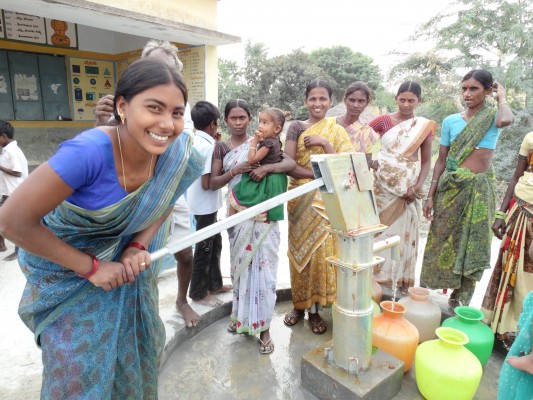
Nature for Water – World Water Day 2018
March the 22nd is World Water Day, which is an incredibly important time for us at Drop4Drop as we raise and spread awareness of the importance of access to clean water, as well as how we can work together to help maintain this precious resource as it becomes increasingly more at risk of pollution globally. The theme of this years World Water Day is ‘Nature for Water’, which focuses on how we can use and apply green infrastructure as a sustainable and cost-effective solution to our water crisis, improving its availability, quality and overall management. Nature-based solutions (NBS) could be the answer we need over man-made infrastructure, giving equal or similar benefits to recharging and maintaining our water supplies for future generations.
Climate change is leading to issues such as flooding and droughts, which is affecting access to water as well as water quality, with soil erosion and stormwater-run off carrying toxins and pollutants. Riparian/stream buffers are one natural based solution that can act as a protection to ensuring clean waterways. The buffers are a vegetated area (trees, shrubs, grasses) that run alongside or near streams and rivers. By acting as a shade or filter to the water resources, they can reduce the level of pollution from pesticides, nutrients and other toxins, as well as act as a stabilizer to reduce soil erosion.
“64-71% of natural wetlands have been lost since 1900 as a result of human activity” (UN Environment, 2018). Restoring wetlands can help flood management and reduce levels of pollution from surface-water runoff. As well as this, they can help manage and slow the speed of flood water from its vegetation, helping distribute the water over floodplains slower and effectively reducing levels of soil erosion.
Many rivers in the modern world today have been modified, due to man-made infrastructures such as dams, disconnecting them from their floodplains. Floodplains connected to their rivers are some of the most precious ecosystems we have left on the planet today. By restoring more rivers back to their floodplains (and vice-versa), it can help reduce flood-risks, and land will be less prone to flood-damage. As well as this, it is more effective in naturally depositing sediment and nutrient pollution, helps sustain a stronger vegetation structure and recharges groundwater supplies.
2.1 billion people are currently living without access to safe drinking water, and with our population continuously growing, this number will increase. We need to focus on how we can work with nature to help our planet and restore our ecosystems from environmental damage and climate change. Celebrate World Water Day with us today, and help spread awareness of the importance of safe water access, and how we can utilize nature based systems to re-balance the water cycle, and protect our environment and our planet!